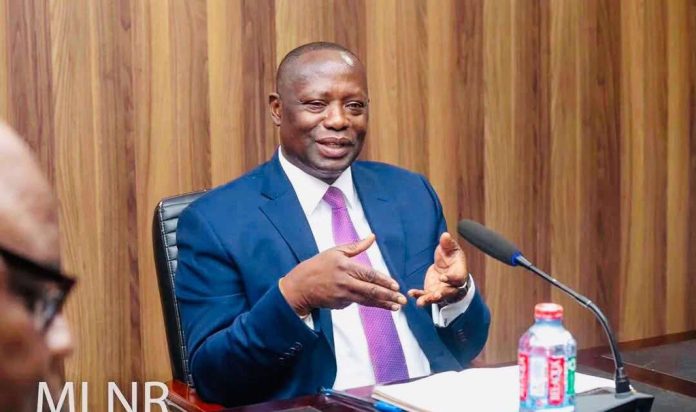The leadership of the Concerned Timber Contractors of Ghana (CTCG), led by Bright Kwesi Nkeyasen, has issued a strong warning to the government over what it describes as the rapid deterioration of the timber industry due to policy missteps, regulatory inaction.
At a press briefing in Accra on Monday, Mr. Nkeyasen declared that unless President John Mahama’s government urgently addresses their concerns, the group will mobilise timber workers, their unemployed families and heavy-duty equipment, including sawmill machines, bulldozers and trucks – for a mass picketing at the Ministry of Lands and Natural Resources.
“We are not here to wash our dirty linen in public, but some of these issues are tied to national security. The industry is dying. Investors are leaving. We are losing millions of dollars and jobs daily,” Nkeyasen emphasised.
According to the group, over 300 sawmill investors have relocated from Ghana to Togo alone, leading to the collapse of numerous timber operations and the loss of over five million jobs across the value chain.
Contractors involved in plantation development and log processing for both export and local markets say they have been sidelined and overburdened by a policy environment that is increasingly hostile to business.
Mr Nkeyasen called for a “serious reset” of the Forestry Commission, aligning it with what he termed the President’s broader “Reset Agenda” for state institutions.
“The Commission must be restructured to respond to the real needs of industry players,” he said, urging President Mahama to directly intervene and promising to supply the government with detailed leads and documentation to support such a reform.
He also lamented the sharp drop in foreign exchange revenue from timber exports, despite a reported increase in volume. According to him, systemic inefficiencies and diversion of funds are to blame, mirroring past trends in Ghana’s gold and mineral sectors.
A key grievance raised involved the fumigation of timber for export. Traditionally managed by the Ministry of Agriculture’s Plant Quarantine Department, the process was handed over in 2017 to a private foreign-owned company allegedly linked to other timber interests, creating what CTCG describes as a “clear conflict of interest.”
“Ghana now pays the highest fumigation charges in the world,” Nkeyasen stated, citing US$200 for lumber and US$150 for logs per 20ft container, compared to less than US$10 in neighbouring West African countries.
He demanded transparency on how fumigation fees are collected and disbursed, questioning which accounts receive the funds, and why industry players have not seen proper accounting for their supposed share.
CTCG also decried the unsustainable pricing regime for stumpage (timber harvested from plantations), citing increases from GH¢200 to over GH¢1,000 per cubic meter, plus 22% in taxes.
These price hikes, the group says, have crippled competitiveness on the international market and encouraged illegal chainsaw operations.
On export pricing, they claim the Forestry Commission continues to impose unrealistic minimum prices—US$300 for logs and US$400 for lumber—while real global prices hover between US$200 and US$250. “We pay levies on paper prices that do not reflect the market, forcing us to sell at a loss,” Nkeyasen noted.
The group also raised alarm over increased cubic meter requirements for export documentation. Where a 20ft container previously required 23 cubic meters, it has now been raised to 40.1 cubic meters, making it harder for exporters to maximize profits.
Flawed Timber Allocation and Legal Breaches
Another major issue was the alleged breach of L.I. 1721, Ghana’s legislative framework for timber rights and permit allocation. The law mandates that timber rights be granted through tender or bidding processes, with exceptions granted only by the sector minister under special circumstances.
“From 2017 to 2024, not a single tender has been conducted. Rights are being allocated without legal transparency,” said Nkeyasen, accusing the previous administration of institutionalised favouritism and undermining due process.
Mr. Nkeyasen concluded with a final appeal to President Mahama, warning that without prompt intervention, the group will take their grievances directly to the Ministry in a large-scale protest.
“Mr. President, this is a national crisis. Investors are fleeing. Jobs are disappearing. The Forestry Commission is broken. We are ready to help fix it but we need your leadership now.”
The Concern Timber Contractors of Ghana has pledged to submit a formal petition to the Office of the President and the Parliamentary Select Committee on Lands and Forestry in the coming days.









